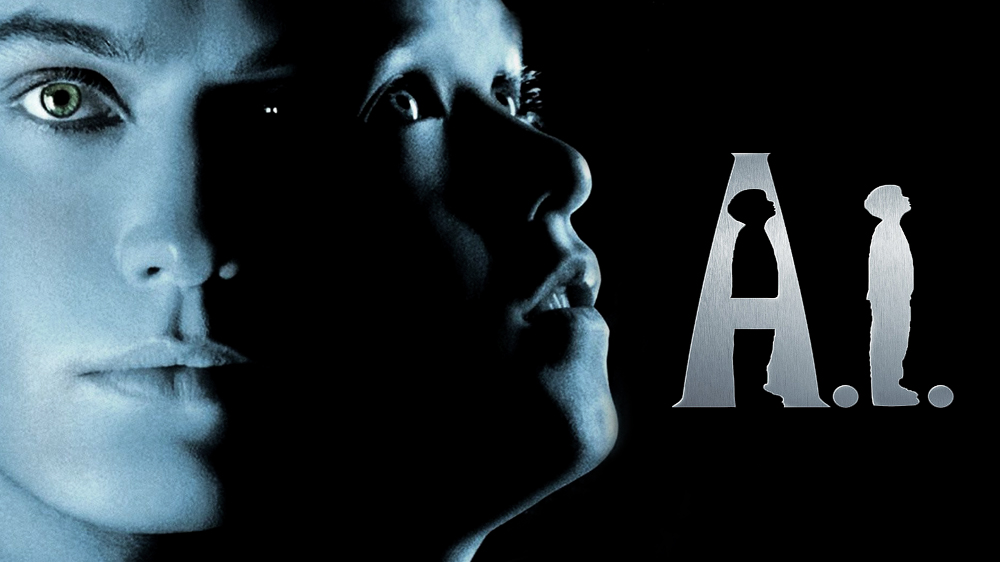IMBD’s short summary of the movie reads like this: A highly advanced robotic boy longs to become "real" so that he can regain the love of his human mother. That might be the plot of the movie, but beneath this masterpiece which is based on Isaak Asimov’s novel, there loom quite a view serious questions and both the author and the directors play with some of our most ancient human fears.
The more I touch upon Isaak Asimov, the more I wonder about his prodigy. Biochemistry professor and one of the most prolific science fiction writers of all time. I admit though that I will have to read his books, because one can clearly feel Mr. Kubrick’s well known negative outlook upon humanity throughout the movie. I enjoyed watching Kubrick’s movies when I was young, but now at mid-age, I feel like he lacked until the end of his life necessary optimism. All his famous films like Eyes Wide Shut, Clock Work Orange or 2001 - A Space Odyssey could well be labelled horror movies. If compared to Steven King, for example, they seem to be much closer to our lives, situated somewhere at the margins of reality.
AI has two main themes: respect towards the dreams and desires of organisms in the widest sense, which we don’t label human; and humanity’s limited place in evolution. The first theme finds its climax in the pool scene [which reminded my somewhat of Django Unchained], where a few boys start to pick on the android David and draw a clear line between Mecha, for mechanic and therefore not worthy of any respect, and Orga, for organic and therefore part of the supreme human race. One could substitute Mecha and Orga with Blacks and Whites, slaves and citizens or ape and man during certain periods of our history. All these categorize boil down to the same essence: once an organism is excluded from our common myths of human rights and national constitutions, we seem to get a license to channel all our rage and frustrations against that individual or group of individuals. Asimov elaborated on this theme already in Bicentennial Man, which was turned 1999 into a movie, exhaustingly. The fresh flesh arena, where expired or criminal androids are destroyed in a spectacle which is a mixture between a public medieval decapitation, a Roman gladiator games and a modern US style wrestling competition, shows how that future society tries to vent its individual and collective psychopathological energies in a regulated albeit cruel method.
The second theme dominates the later part of the movie and creeps in somewhat unexpectedly. Yes, artificial life enjoys a center stage throughout the movie, but only after our miserable android boy David has spent 2000 years frozen at the bottom of the ocean being excavated in a futuristic archeological site, we realize that the human race is extinct. Artificial intelligence shaped in slender, asexual humanoid bodies has evolved into the dominant life form. Evolution has seemingly eliminated all the negative characteristics of mankind; our successors are intelligent beyond measure and emphatic beyond imagination. They recognize the Androids psychological set up, i.e. only my mommy’s love will make me happy, and try everything within their power to realize his dreams and fulfill his desires.
A grand but frosty movie. I am amazed how Spielberg managed, despite Kubrick’s death, to match the master of gloominess’ directing style. Both film and book are great works of art. My criticism is therefore straightforward onto its relevance for our reality. Kubrick died too early as to enjoy the benefits of cognitive behavioral therapy. It would have been a pleasure to watch only one of his movie’s with an optimistic twist instead of all this predictable pessimism. As for Asimov’s novel, I have a similar line of argument: the first two thirds of his novel feel like a waste of time and I would have preferred more contents on artificial intelligence. Neither the movie nor the book deserve that title, because what we get is more a treatise on artificial emotion. And how easily could have Asimov short cut this theme, if he had allowed his engineers to reverse program the Mecha’s imprint. Something much more difficult to succeed with in an Orga’s psyche.
